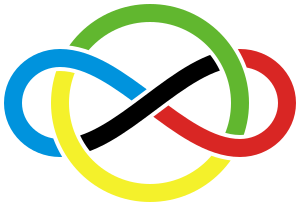MathOverflow Created 2024-07-12 Updated 2025-07-16
Number of elements in a Farey sequence Created 2024-07-12 Updated 2025-07-16
Farey sequence Created 2024-07-12 Updated 2025-07-16
LightLogic Created 2024-07-12 Updated 2025-07-16
Company founded by Marc Verdiell in his garage, and later acquired by Intel which was going on a optoelectronics buying spree. The division was later sold off in 2023 of course during more difficult times: www.theregister.com/2023/10/31/intel_silicon_photonics_jabil/
It's hard to understand exactly what the company did by Googling it nowadays. Sad and usual fate. Presumably something related to transceiver for fiber-optic communication. Only the patents remain: patents.google.com/?assignee=lightlogic&oq=lightlogic to tell its story to the brave.
Entity against giving answer to problem sets Created 2024-07-12 Updated 2025-07-16
Extracurricular school Created 2024-07-12 Updated 2025-07-16
Time complexity Created 2024-07-12 Updated 2025-07-16
Problem set Created 2024-07-12 Updated 2025-07-16
www.quora.com/Is-MIT-the-only-place-where-homework-is-called-problem-sets
Terminology by location:
Places that say "problem set":Places that say "problem sheet":Places that say "example sheet":
Terminology by location:
Places that say "problem set":Places that say "problem sheet":Places that say "example sheet":
- University of Cambridge. Source: www.inference.org.uk/sanjoy/teaching/corpus/
Mechanics/Molecules (Fall term) example sheets (Cambridge jargon for problem sets)
Give answers to problem sets Created 2024-07-12 Updated 2025-07-16
Stack Exchange site Created 2024-07-12 Updated 2025-07-16
International Mathematical Olympiad Created 2024-07-12 Updated 2025-10-14
Reduced fraction Created 2024-07-12 Updated 2025-07-16
A "reduced fraction" is a fraction that has the smallest possible integer numerator and denominator for its value.
For example:is not a reduced fraction, because there is another fraction equal to it but with smaller numerator and denominator:
Totient summatory function Created 2024-07-12 Updated 2025-07-16
Hilbert's tenth problem is decidable for quadratic equations Created 2024-07-12 Updated 2025-07-16
TODO is it or is not:
- mathoverflow.net/questions/207482/algorithmic-un-solvability-of-diophantine-equations-of-given-degree-with-given
- math.stackexchange.com/questions/181380/second-degree-diophantine-equations
- mathoverflow.net/questions/142938/is-there-an-algorithm-to-solve-quadratic-diophantine-equations
- math.stackexchange.com/questions/798609/is-there-any-solution-to-this-quadratic-diophantine-equation
Quadratic Diophantine equation Created 2024-07-12 Updated 2025-07-16
Quadratic equation modulo n Created 2024-07-12 Updated 2025-07-16
Pre-university knowledge olympiad Created 2024-07-12 Updated 2025-10-14
Hilbert's tenth problem over other rings Created 2024-07-12 Updated 2025-07-16
mathoverflow.net/questions/11540/what-are-the-most-attractive-turing-undecidable-problems-in-mathematics/11557#11557 contains a good overview of the decidability status of variants over rings other than the integers.
Decidability of Hilbert's tenth problem of a given degree and number of variables Created 2024-07-12 Updated 2025-07-16
Decidability of Hilbert's tenth problem in modular arithmetic Created 2024-07-12 Updated 2025-07-16
There are unlisted articles, also show them or only show them.
